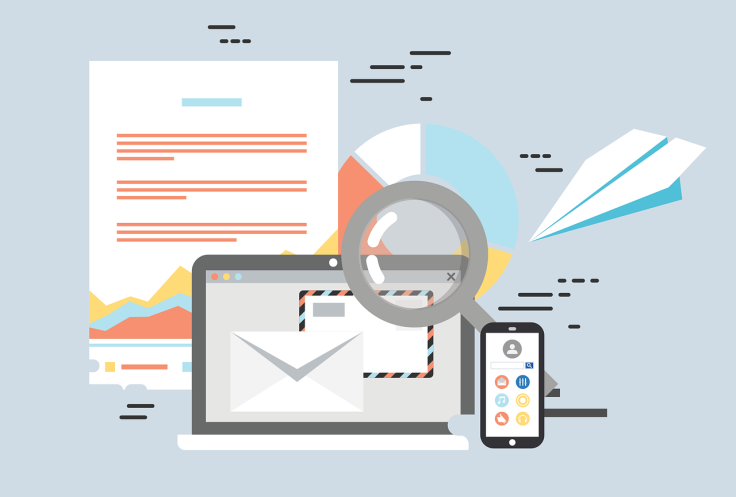
Email marketing is a cornerstone of modern marketing strategies. But how can you best connect this cornerstone to the rest of the foundation to make it more effective?
Most modern businesses are using any number of platforms and apps to cover their business needs. CRM systems, e-commerce, graphic design, team collaboration, accounting, data analytics - where does email marketing fit in?
Most email marketing platforms offer some analytics features, some even include CRM tools. But crucially, they also allow for integrations to interconnect the technological foundation of your business in one swoop. And boost email marketing productivity in the process.
This article takes a look at some of the best among the hundreds of integrations for Mailchimp, as well as for Mailchimp alternatives ActiveCampaign and Campaign Monitor. With these, businesses can streamline workflows, harness cross-platform data, and build better email marketing campaigns faster.
1 - CRM Tools
Customer relationship management tools provide invaluable data that email marketing platforms can harness for automation and personalization - essential for creating effective campaigns.
While both Mailchimp and ActiveCampaign offer native CRM systems, an external, specialized CRM tool usually provides a larger array of features, and an easy link to other marketing channels.
Integrations for Insightly, Zoho CRM, and Salesforce are available on all three platforms. Campaign Monitor also offers a direct integration of Agile CRM. Mailchimp integrates with a staggering number of CRM tools, from Base CRM and Teamgate to Vtiger CRM and Lightspeed. ActiveCampaign also has a wide selection, among them CapsuleCRM and Nutshell CRM.
2 - E-commerce Platforms
Linking email marketing platforms to e-commerce sites is a fantastic opportunity to create synergy. Customer behavior data is a boon to personalization, and directly linking email content to online shops - and the reviews there - increases conversions.
All three platforms offer tight integrations with WooCommerce, Magento, and Shopify. ActiveCampaign adds BigCommerce, PrestaShop, and a number of industry-specific platforms like Gumroad. Mailchimp features PrestaShop, Big Cartel, and X-Cart, among others.
3 - Team Collaboration and Project Management Tools
There is a global trend towards remote workforce setups and distributed teams - which the corona pandemic accelerated. Integrating your email marketing platform with a team collaboration tool is bound to make designing an email campaign go more smoothly. They'll help you keep track of activities like design, writing, and analytics.
ActiveCampaign and Mailchimp both provide integrations for Slack, one of the most popular team collaboration tools currently on the market, while Campaign Monitor connects to Asana. ActiveCampaign furthermore offers a direct integration with Project Manager.
4 - Forms and Surveys
Interactive elements in your email marketing campaigns engage your audience, increasing conversion rates. Whether it's a contest, a re-engagement campaign, or customer feedback, forms and surveys also gather data you can use for automation and personalization.
On Mailchimp, ActiveCampaign, and Campaign Monitor, a multitude of form and survey tools are available, with JotForm, Formstack, and Paperform available on all. 123Formbuilder can be integrated into Campaign Monitor and ActiveCampaign, while ActiveCampaign and Mailchimp both integrate LeadQuizzes and Surveymonkey.
5 - Analytics
All three email marketing platforms include some analytics capabilities. But to gain the deepest insights possible, integrating dedicated analytics platforms is indispensable.
Mailchimp integrates with platforms such as Metrics Watch, EA Pro Reports, and Cyfe, while ActiveCampaign offers apps for services such as AgencyAnalytics, Databox and SendForensics. Campaign Monitor also integrates with Databox, as well as Ematic, Fido and Lytics among others.
To make the most of your data and grasp the gist in one look, all three platforms also offer integrations to display the most important metrics on a dashboard, such as Dasthis, Dasheroo, and Grow.
The Zapier Solution
As a final note, there is no need to despair if your business is already using certain tools that are well-integrated into your workflow, but which don't have direct integrations on the email marketing platforms you use. The solution to this particular conundrum is Zapier.
Zapier is a platform that allows users to integrate a large variety of web solutions. Mailchimp, ActiveCampaign, and Campaign Monitor all offer Zapier integrations - and can thus be connected with any platform that does the same.
The Automate.io Solution
Automate.io lets you connect 100+ apps from Sales, Marketing, and E-Commerce. One such great example for CRM & Marketing is their HubSpot & Salesforce Integration.
Final Thoughts
Setting up a network of apps and platforms that covers business needs from design to e-commerce is challenging. Finding systems that suit every business' individual needs, and then connecting them takes time and technical skill.
It pays off, though. Take into account from the beginning how the systems you choose integrate with each other, and what synergy you can achieve, and you will save yourself time, money, and headaches. Awarding email marketing a central position in this nexus of platforms will boost your email marketing productivity, conversion rates, and business success.









